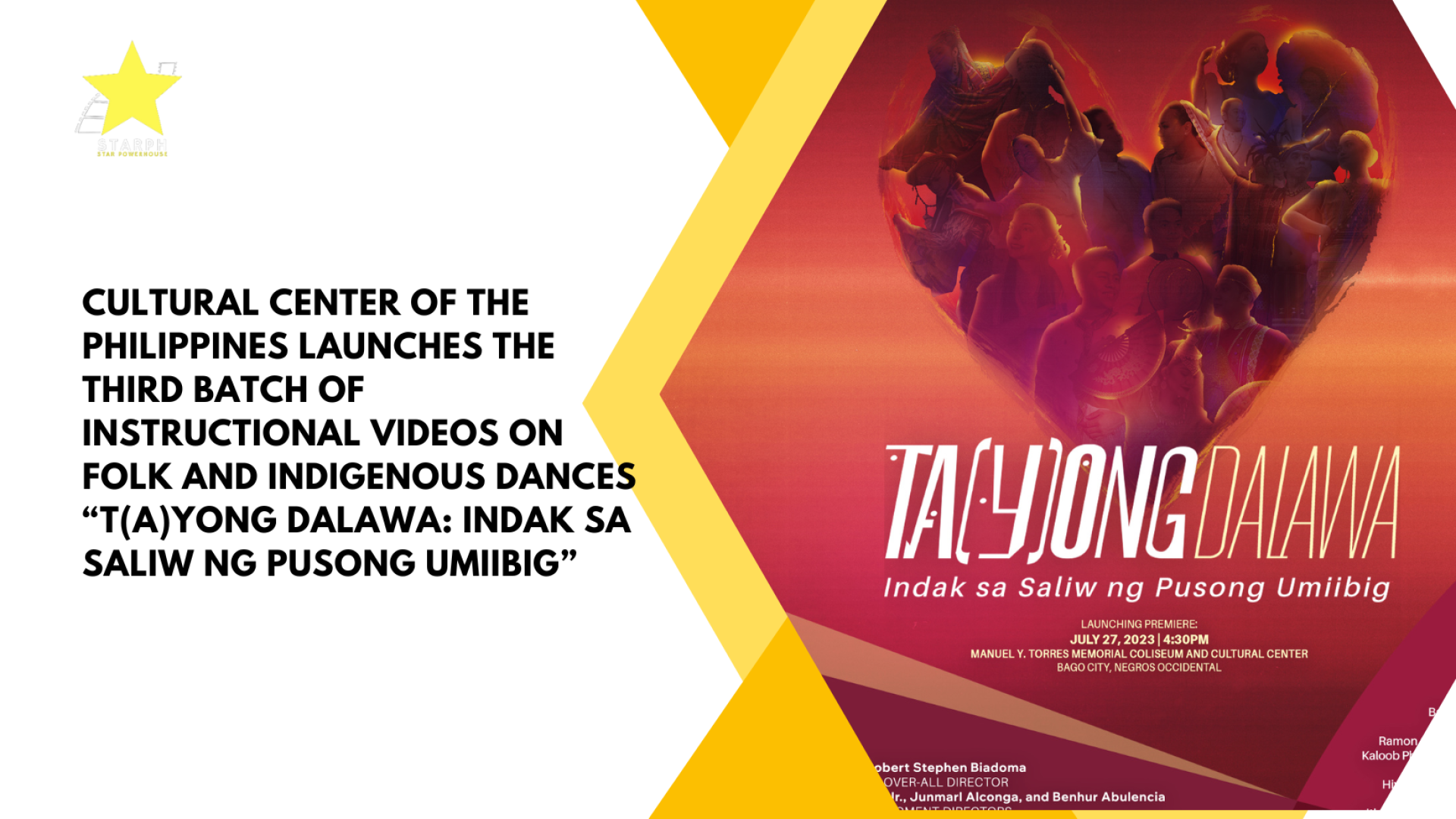
Committed to the dissemination, preservation, and promotion of folk and indigenous arts, the Cultural Center of the Philippines launches the third batch of instructional videos on folk and indigenous dances, dubbed “T(A)YONG Dalawa: Indak sa Saliw ng Pusong Umiibig, featuring courtship, wedding, and romantic dances from different regions in the country.
To be launched during the National Folk Dance Workshop slated on July 27, 2023, at Manuel Y. Torres Memorial Coliseum and Cultural Center, Bago City, Negros Occidental, “T(A)YONG Dalawa” features instructional videos of eight selected folk and indigenous that showcase the various facets and cultural contexts of romantic love.
The eight selected folk and indigenous dances, categorized into popular and unpublished are: Salip: Ligawan sa Kumot, performed by Kaloob Philippine Music and Dance Ministry; Kuratsa: Ki-ay han Hul-os nga Gugma, performed by the Ramon Obusan Folkloric Group; Singkil: Sagip sa Sintang Ibig, performed by Bayanihan, The National Folk Dance Company of the Philippines; Balse ng Desposorio: Unang Hakbang sa Walang Hanggan, performed by Sining Bulakenyo (SIBUL); Palobô: Pagsúyo sa Siphayo ng Pobreng Puso, performed by Hiyas Kalilayan Cultural Group (HKCG); Kasal Dauinanon: Ritwal, Rito, Ug Tradisyon, spearheaded by PFDS Negros Oriental Chapter and NORSU, performed by Kahayag Dance Company; Valse Zamboangeña: El Paranguas de Amor, performed by WMSU Jambangan Dance Troupe; and Madal Siwol: Walang Hanggang Pag-ibig, performed by Helobung Community Dance Troupe Inc.
Each instructional video contains historical and cultural background of the dance, introduction to the dance’s indigenous musical accompaniment (including the types of musical instruments used and the basic rhythms), the costumes and props, the peculiar movements of the dance, and a five/seven-minute short film on the dance.
“In line with our mission to promote and preserve the best of Filipino arts and culture, the T(A)YONG Dalawa project utilizes modern technology to document and catalogue existing Philippine folk and indigenous dances, while democratizing the access and distribution of knowledge and skills to as many dance practitioners as possible,” enthused CCP president Margie Moran-Floirendo.
Through this project, the CCP aims to create awareness among the younger generations on the rich and diverse Philippine dance heritage, as well as provide accurate information on the origins, specific characteristics, and the sociocultural context of folk and indigenous traditions.
In collaboration with Philippine Folk Dance Society (PFDS) and groups from different Filipino cultural communities, the project is spearheaded by the CCP Arts Education Department, with Robert Stephen Biadoma as artistic director for video, Rafael Alexander Froilan, Jr., Junmarl Alconga, and Benhur Abulencia as segment directors for the unpublished dances.




